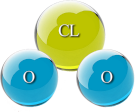Protocol H: Difference between revisions
Created page with "== H) Habitat - to avoid contagion and respiratory infections. == ===== ● Protocol H = 30-50 ml of CDS (0.3% = 3000 ppm) in an open beaker. ===== Protocol to avoid contagion or pulmonary problems in rooms: Protocol H is effective for all types of pulmonary conditions, and its use is safe as it is supported by peer-reviewed scientific studies [Ogata et al.]. Procedure: To implement it, place 10-50 ml of undiluted CDS in a dry glass, preferably opaque, in the bedroom..." |
No edit summary |
||
| Line 8: | Line 8: | ||
Procedure: To implement it, place 10-50 ml of undiluted CDS in a dry glass, preferably opaque, in the bedroom, depending on the size of the room. The CDS will evaporate slowly, and its effectiveness will be greater if it is placed at a distance of 1-2 meters from the sick person. In warmer environments, evaporation is faster. It is important to keep in mind that the characteristic yellow color of the CDS disappears over time and should be replaced when this occurs. | Procedure: To implement it, place 10-50 ml of undiluted CDS in a dry glass, preferably opaque, in the bedroom, depending on the size of the room. The CDS will evaporate slowly, and its effectiveness will be greater if it is placed at a distance of 1-2 meters from the sick person. In warmer environments, evaporation is faster. It is important to keep in mind that the characteristic yellow color of the CDS disappears over time and should be replaced when this occurs. | ||
It is essential to take precautions to avoid direct inhalation, as it is not recommended for safety reasons. Only experienced physicians may do so under strict supervision of the patient and using minimal doses (2-3 drops of CDS) in an inhaler. If chlorine dioxide is inhaled in large quantities, it can cause serious respiratory problems by occupying the pulmonary alveoli. | |||
It is essential to take precautions to avoid direct inhalation, as it is not recommended for safety reasons. Only experienced physicians may do so under strict supervision of the patient and using minimal doses (2-3 drops of CDS) in an inhaler. If chlorine dioxide is inhaled in large quantities, it can cause serious respiratory problems by occupying the pulmonary alveoli. | |||
In case of accidental massive inhalation, antioxidants and corticosteroids are used. The patient typically recovers completely after 14 days. | |||
Latest revision as of 13:55, 22 August 2024
H) Habitat - to avoid contagion and respiratory infections.
● Protocol H = 30-50 ml of CDS (0.3% = 3000 ppm) in an open beaker.
Protocol to avoid contagion or pulmonary problems in rooms: Protocol H is effective for all types of pulmonary conditions, and its use is safe as it is supported by peer-reviewed scientific studies [Ogata et al.].
Procedure: To implement it, place 10-50 ml of undiluted CDS in a dry glass, preferably opaque, in the bedroom, depending on the size of the room. The CDS will evaporate slowly, and its effectiveness will be greater if it is placed at a distance of 1-2 meters from the sick person. In warmer environments, evaporation is faster. It is important to keep in mind that the characteristic yellow color of the CDS disappears over time and should be replaced when this occurs.
It is essential to take precautions to avoid direct inhalation, as it is not recommended for safety reasons. Only experienced physicians may do so under strict supervision of the patient and using minimal doses (2-3 drops of CDS) in an inhaler. If chlorine dioxide is inhaled in large quantities, it can cause serious respiratory problems by occupying the pulmonary alveoli.
In case of accidental massive inhalation, antioxidants and corticosteroids are used. The patient typically recovers completely after 14 days.
